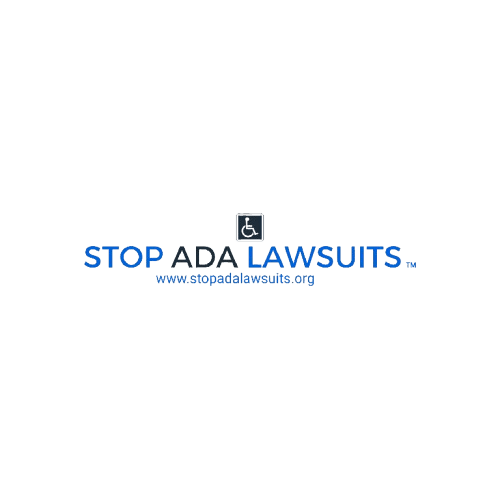Running a business is like juggling flaming swords—blindfolded. You’re focused on keeping customers happy, balancing budgets, and making sure your coffee machine doesn’t go rogue. But lurking in the shadows of your to-do list is a silent predator: the ADA lawsuit. One moment, you’re celebrating your store’s anniversary, and the next, you’re drowning in legal paperwork because your door is an inch too narrow.
So, how do you know if you’re a target? Here are the signs—and the sarcastic solutions—to keep your business out of the crosshairs.
1. Your Website Is a Digital Minefield
Does your website look like it was built in 2007? Worse, does it function like it’s still stuck there? If screen readers can’t navigate your site, or if your images don’t have alt text, congratulations—you’re basically advertising for a lawsuit.
The Fix: Think of web accessibility as your website’s “glow-up.” Add alt text to your images, ensure keyboard navigation works, and invest in captions for videos. Bonus points if you make your site look so sleek, even a TikTok influencer would be jealous.
2. Your Parking Lot Is a Lawsuit Waiting to Happen
Ah, the humble parking lot. It’s not just a place for cars; it’s a labyrinth of legal requirements. Got a handicap space with no van-accessible aisle? Slopes that feel more like a ski resort? Welcome to lawsuit central.
The Fix: Hire a professional to mark out proper ADA-compliant spaces and double-check your slopes. And remember: a fresh coat of paint on those lines is cheaper than a lawsuit any day.
3. Your Doors Are Gatekeeping (Literally)
If your doors are too heavy, too narrow, or just plain hard to open, you’re sending a clear message: “Stay out…and sue me later.” Accessibility starts at the entrance, people!
The Fix: Make sure doorways are wide enough (at least 32 inches when open), and install automatic doors if you can. Think of it as rolling out the red carpet—but for everyone.
4. The Ramp That Leads to Nowhere
You’ve got a ramp—great! But does it meet slope requirements? Does it have handrails? Does it…actually lead to your entrance? You’d be surprised how many ramps are just decorative lawsuits in disguise.
The Fix: Follow the ADA’s guidelines for ramp slope, width, and placement. And please, make sure it connects to something useful. A ramp to a brick wall is not only non-compliant—it’s downright cruel.
5. Your Restroom Is a Compliance Black Hole
Restrooms: the final frontier of ADA compliance. From mirror heights to soap dispenser placement, one tiny oversight can cost you big time. Did you know someone once got sued because their restroom didn’t have enough turning space for wheelchairs? True story.
The Fix: Measure everything. Ensure there’s enough space for wheelchairs to maneuver, install grab bars, and keep all fixtures within reachable height. Treat your restroom like a compliance temple. Worship the rules.
6. You’re Using Ignorance as a Defense
“I didn’t know” is not a get-out-of-lawsuit-free card. In fact, it’s more like a “please sue me harder” invitation. ADA compliance isn’t optional just because you’re “a small business trying your best.”
The Fix: Educate yourself. The ADA website is free, and consultants can guide you through the murky waters of compliance. Ignorance may be bliss, but it’s also expensive.
7. You’re Waiting for a Lawsuit to Fix Things
Some businesses take a “wait-and-see” approach to compliance, hoping they’ll slip under the radar. Spoiler alert: they won’t. Predatory lawsuits thrive on this strategy.
The Fix: Be proactive. Conduct an accessibility audit before someone else does it for you—with legal papers. Think of it as investing in peace of mind.
Final Thoughts: Prevention Is Better Than Litigation
ADA lawsuits are no joke, but that doesn’t mean we can’t laugh at the absurdity of some situations. The reality is, compliance is about creating spaces that everyone can enjoy—and protecting your business in the process. So measure those restrooms, repaint those parking lots, and give your website the makeover it deserves.
Because in the game of ADA compliance, the only winning move is not to get sued.
